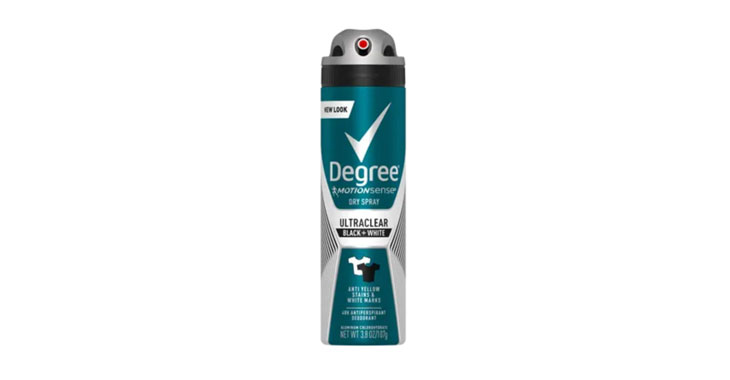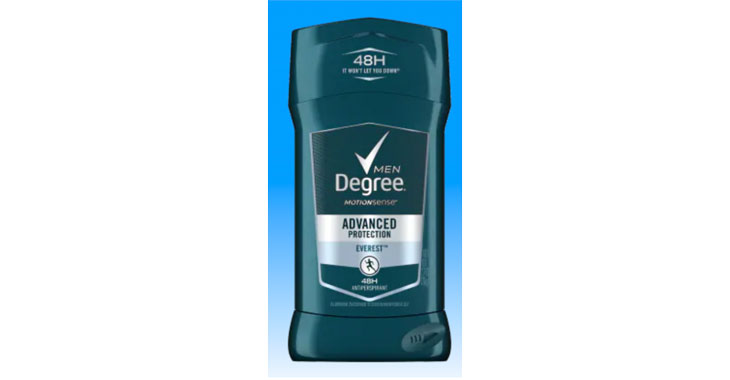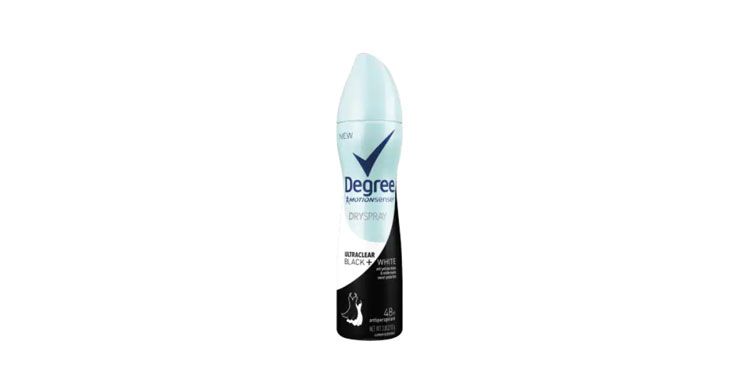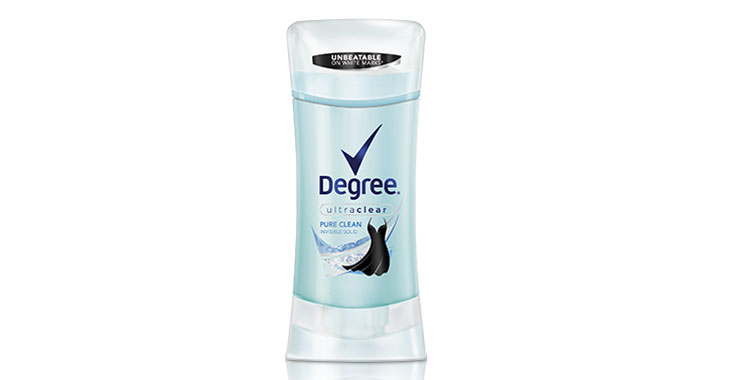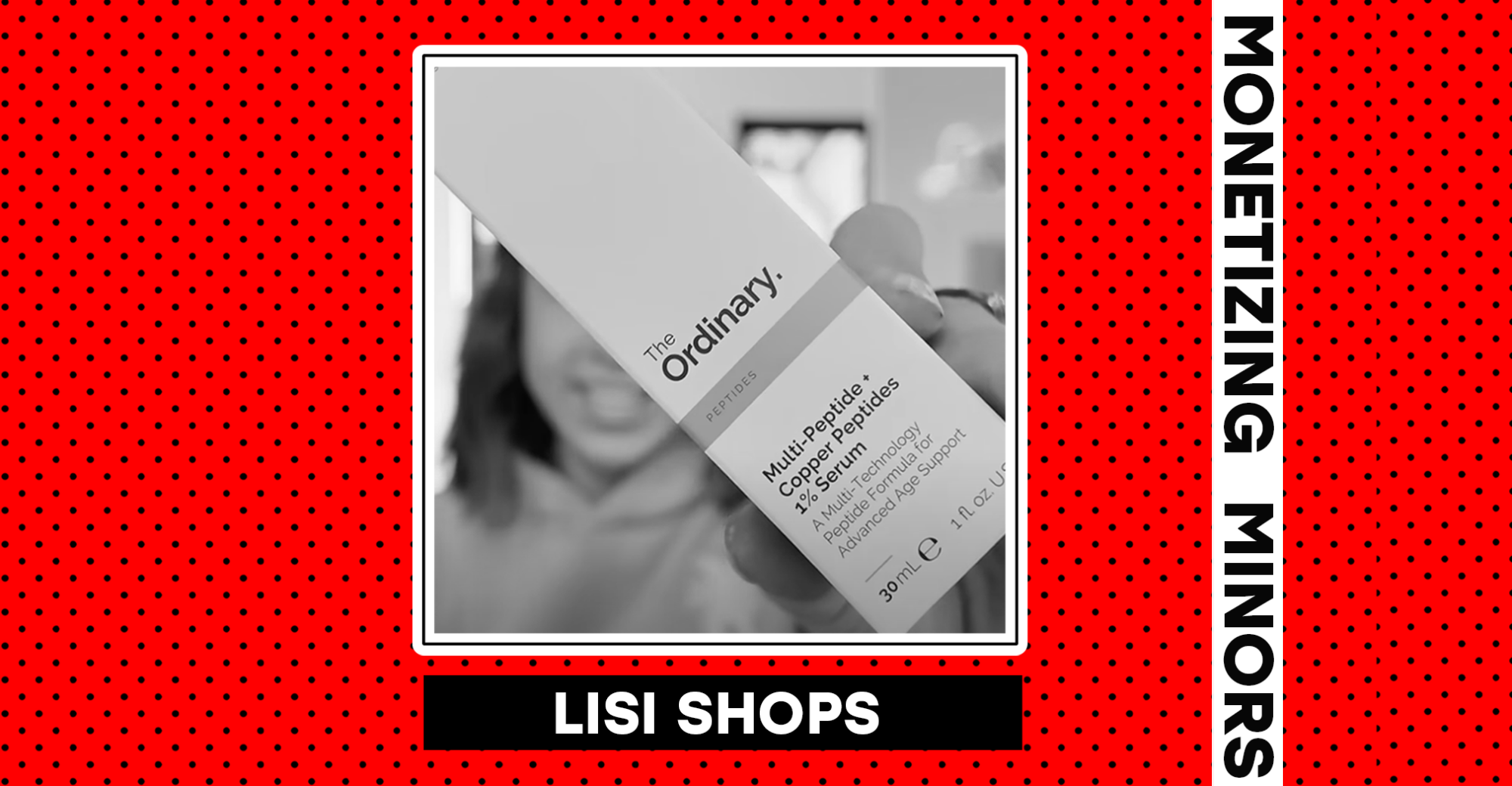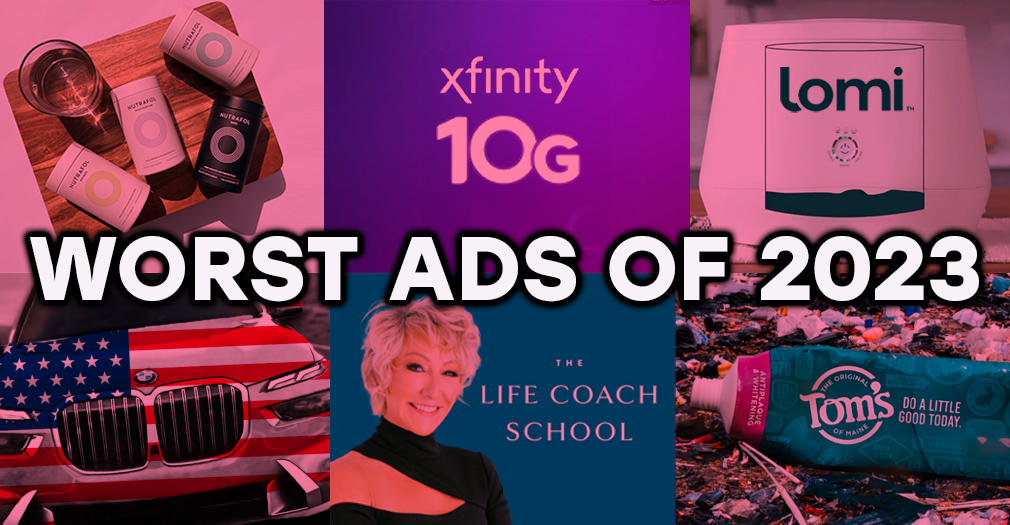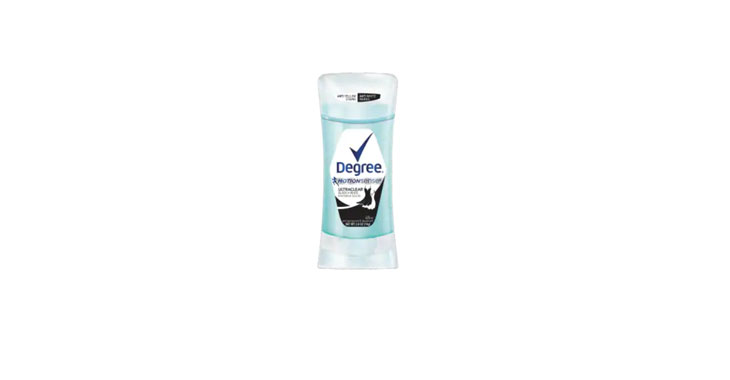
Degree MotionSense UltraClear Black + White
Allegations: Misleadingly marketing products as providing “stain-free protection” and as “anti” white marks and yellow stains when the active ingredient actually causes both
September 2015: A federal judge dismissed this lawsuit. The false advertising claims were dismissed because plaintiffs did not sufficiently allege that advertisements are false and that they relied on such false claims. Other claims – including the slack-fill and usable net weight claims – were dismissed because the judge found that the FDA regulates the area and, as a result, the claims were preempted by federal law and regulations. To learn more about the reasons various claims were dismissed, click here to read the court order.
February 2015: Plaintiffs filed an amended complaint making similar allegations about the packaging of various Axe® and Degree® deodorants. In addition to the allegations about the size of the containers, the amended complaint alleges that the net weight statements are misleading for two reasons: First, consumers cannot use a portion of the deodorant because it is under a plastic platform; and second, the total weight of both the usable and unusable portion is lower than the represented net weight.
September 2014: A class-action lawsuit was filed against Unilever for allegedly deceptively packaging deodorants and antiperspirants, including Degree® Dry Protection and AXE® Gold Temptation™. According to the plaintiffs, the size of the containers gives consumers the impression that they are getting more deodorant than they actually are (i.e., the container is 5 ¾ inches high and 2 ¾ inches wide when the actual deodorant is 3 inches long and 2 ½ inches wide). (Bimont et al v. Unilever United States, Inc., Case No. 14-cv-07749, S. D. NY.).
For more information about the misleading advertising of deodorants, click here.
For more information about the use of You know when you buy a big bag of chips, and you’re all psyched for a feast, and then it turns out there are like, three chips in the bag? That bag is slack filled.ed packaging and TINA.org’s coverage of the issue, click here.
Allegations: Misleadingly marketing products as providing “stain-free protection” and as “anti” white marks and yellow stains when the active ingredient actually causes both
Allegations: Misleadingly marketing that products reduce white marks and yellow stains when they actually cause both
What’s this kidfluencer doing promoting a “youth cream”?
Companies should not be able to trap consumers into subscriptions that they do not want.
Six big game marketers that have been accused of fumbling ad claims.
Some of the worst ads TINA.org covered this year.
TINA.org files complaint with the FDA and FTC over company’s hair growth claims.
